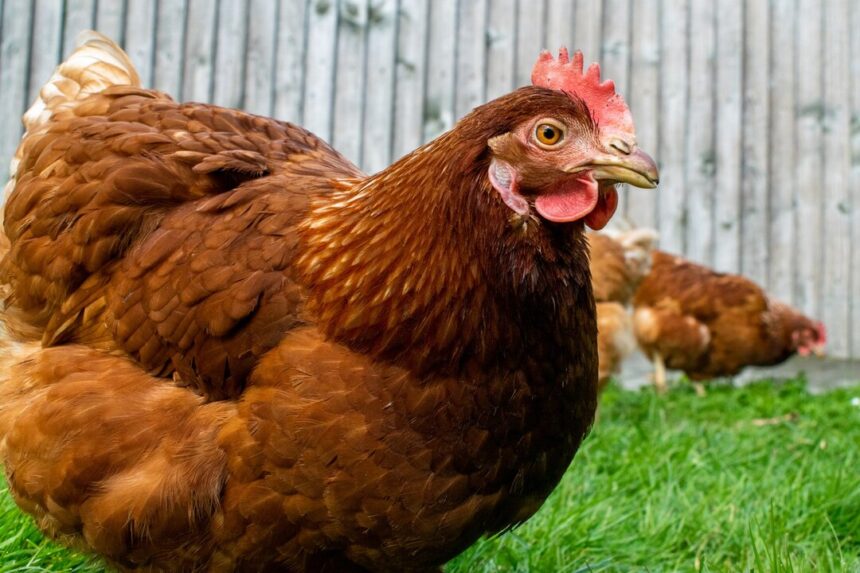New Hampshire chickens are a popular breed known for their dual-purpose nature, excellent meat quality, and hardiness. Originally developed in the United States, they have found their way into poultry farms around the world, including South Africa. If you’re considering breeding New Hampshire chickens or already have a flock, here are 10 important things you should know about their breeding and farming:
- Heritage Breed: New Hampshire chickens are a heritage breed with a rich history dating back to the early 20th century. They were developed in the state of New Hampshire in the United States by crossing Rhode Island Reds with other breeds to improve meat production qualities.
- Dual-Purpose Birds: New Hampshire chickens are valued for their dual-purpose characteristics, meaning they are suitable for both meat and egg production. While they excel as meat birds, they also lay a respectable number of brown eggs, making them a versatile choice for small-scale poultry farming.
- Excellent Meat Quality: Known for their flavorful and tender meat, New Hampshire chickens are prized for their superior carcass qualities. Their meat is juicy, well-marbled, and has a rich flavor, making it highly sought after by consumers and chefs alike.
- Hardiness and Adaptability: New Hampshire chickens are hardy and adaptable birds that can thrive in various climates and management systems. They are well-suited to free-range or pasture-based systems, as well as more confined housing setups, making them suitable for different farming environments in South Africa.
- Good Temperament: New Hampshire chickens typically have a calm and docile temperament, making them easy to handle and manage. Their friendly disposition also makes them suitable for backyard or homestead flocks where interaction with humans is common.
- Early Maturity: New Hampshire chickens mature relatively quickly compared to some other breeds, reaching market weight in around 14 to 16 weeks. This rapid growth rate is advantageous for meat production and allows farmers to turn a profit more quickly.
- Breeding for Performance: When breeding New Hampshire chickens, it’s important to select breeding stock with desirable traits such as fast growth, good meat conformation, and high egg production. By focusing on performance characteristics, farmers can improve the overall productivity of their flock.
- Health and Welfare: Providing proper nutrition, housing, and healthcare is essential for maintaining the health and welfare of New Hampshire chickens. This includes access to clean water, balanced feed, adequate shelter, and regular veterinary check-ups to prevent and manage diseases.
- Egg Production: While New Hampshire chickens are primarily bred for meat production, they also lay a respectable number of brown eggs. While their egg-laying capabilities may not match those of dedicated laying breeds, they still provide a valuable source of fresh eggs for households and small-scale farmers.
- Market Demand: With their excellent meat quality and dual-purpose characteristics, New Hampshire chickens are in demand in the South African poultry market. Farmers who breed and raise New Hampshire chickens can capitalize on this demand by supplying quality meat and eggs to local consumers and markets.
By understanding these key aspects of breeding and farming New Hampshire chickens in South Africa, farmers can make informed decisions to optimize their operations and contribute to the sustainable growth of the poultry industry. With their dual-purpose nature, excellent meat quality, and hardiness, New Hampshire chickens are a valuable addition to any poultry farm.
Join 'Farmers Mag' WhatsApp Channel
Get the latest Farming news and tips delivered straight to your WhatsApp
CLICK HERE TO JOIN






